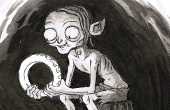Carmen
English Rhetoric and Communication Design MA. An avid reader, developing author, and lifelong explorer who loves bringing interdisciplinary perspectives into dialogue.
Junior Contributor II
- Article of the Month
- ?
- Articles
1 - Featured
1 - Comments
3
- Ext. Comments
3 - Processed
0 - Revisions
0
- Topics
1 - Topics Taken
0 - Notes
2
- Topics Proc.
0 - Topics Rev.
0
- Points
272 - Rank
X - Score
112
Latest Articles
Latest Topics
Diversity for Diversity’s Sake?In this age of “-isms” (feminism, racism, ableism, ageism, etc.) there are many critiques—and rightly so. However, while we may see more diversity, are our media (TV, movies, books, games, etc.) actually more diverse in their appreciation of these groups? For example, does merely fulfilling the Bechdel test actually make a movie feminist? Or, does having non-white actors in minor roles, or acting “White,” add racial diversity? Is the miraculous ability to heal disabled characters truly inclusive? These are only a few questions that you could touch upon. There are a lot of different facets of this argument, but I am curious about what diversity means, and when media can be considered “successfully diverse”? I've tagged this as "film," but it is widely applicable across media.
|
Latest Comments
| Why Books Shouldn't Be Banned | |
A very interesting article, and quite apt given our self-isolation/at-home shift. I enjoyed your use of quotes to highlight the different perspectives, but some context to who you quoted, or where you drew the quotes from, in the article (not just works cited) might’ve been cool context. I think it’s a really good point that’s brought up about private libraries and also, especially, about pirating material given the numerous hoops and financial demands of these competing streaming services. | The Age of Streaming Services: Then, Now, and Beyond |
Wonderful insight into these highly intricate creative processes. I enjoyed your infusion of history with the process as an explanation of the symbolism and diversity of Indian folk art. | Indian Folk-art: An Expression of Cultural Diversity |

I enjoyed your article. A single facet in a much larger censorship discussion, restricting ideas is definitely a slippery slope. While the intent may be well-intentioned, ideas have a particular habit of inevitably offending someone, but that hardly means we ought to ban everything. I liked your range of examples and was particularly interested in your discussion of “13 Reasons Why.” It is so true, as some other comments have also agreed, it’s not fair to ban something simply because it is “uncomfortable” or in case of a reaction.